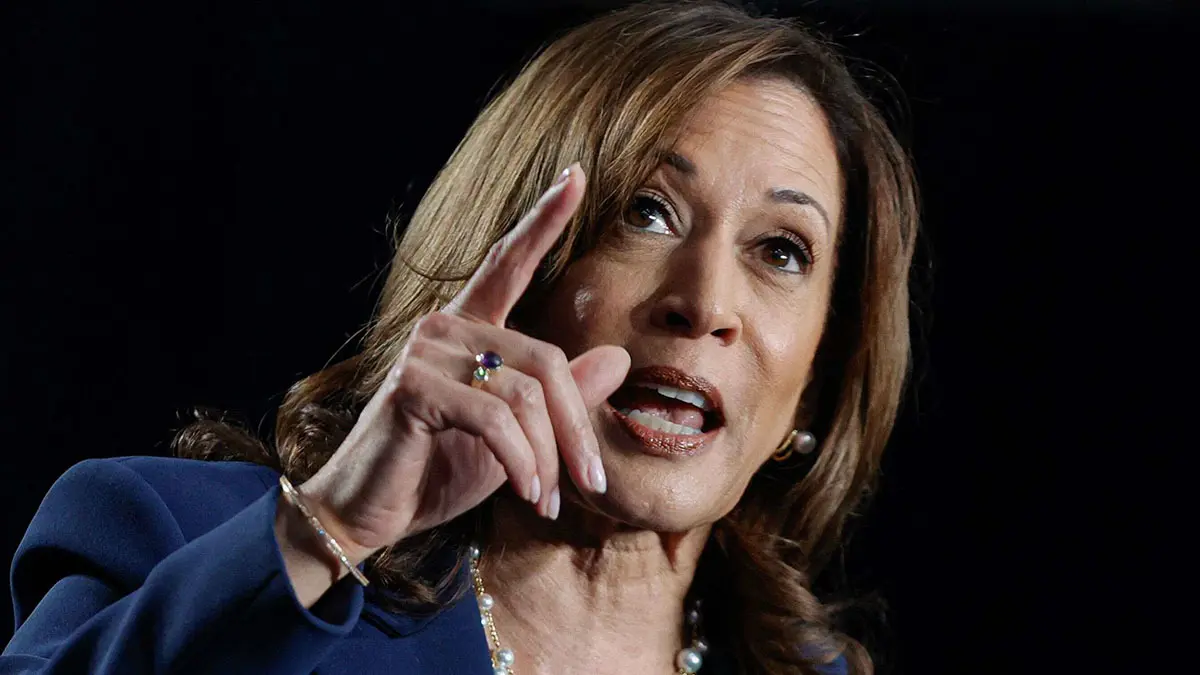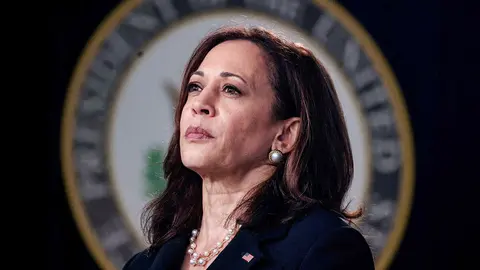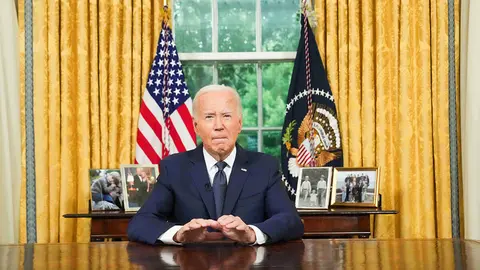Re-inventing the Democratic Party

How many more years will this debate continue? What legal legacy are we leaving for future generations? This Presidential election offers a clear opportunity to highlight the stark differences between Democrats and Republicans on this issue. Kamala Harris can redefine these battle lines, and her potential Vice-presidential candidate could significantly influence the rhetoric from now until election day. Never before has a Vice Presidential pick been so crucial.
President Joe Biden's decision to withdraw from his bid for a second term and endorse Kamala Harris has ignited a wave of potential legal battles and intensified speculation over her Vice-Presidential pick. Harris now prepares to challenge Donald Trump and J. D. Vance. Out of all previous elections, this is likely the first where the Vice President picks could change the course of history.
Biden faced mounting pressure to exit the race following a disastrous debate performance in late June against Donald Trump. Criticized for appearing incoherent and speaking in a weak voice, his party attributed the issues to a cold. However, concerns were exacerbated by a failed interview where Biden struggled to recall if he watched the debate, and during a recent NATO summit in DC, where he mistakenly referred to Ukrainian President Volodymyr Zelensky as President Putin and then called Vice President Harris, "President Trump." These incidents have led Republicans in the House to consider invoking the 25th Amendment to question Biden's fitness to complete his term.
With Biden's endorsement of Harris, she is poised to overcome intra-party challenges, though Republican groups are expected to legally contest her use of Biden-Harris campaign funds. While these claims lack solid legal ground, they could become contentious court battles.
The critical question now is who Harris will select as her Vice Presidential candidate. While Trump and Harris are well-known figures—with Harris representing a younger, more coherent continuation of Biden's image—the Vice Presidential pick is crucial for setting the campaigns apart. Vance, who leans heavily on anti-woke, anti-establishment, MAGA rhetoric, lacks the charisma to captivate an audience. This is where the Democratic Vice President pick could generate traction and highlight the differences between the two campaigns.
The top contenders are Arizona Senator Mark Kelly, Transportation Secretary Pete Buttigieg, Pennsylvania Governor Josh Shapiro, Kentucky Governor Andy Beshear, North Carolina Governor Roy Cooper, Michigan Governor Gretchen Whitmer and California Governor Gavin Newsom. Perhaps they are contemplating a possible draft for President in Chicago at the Democratic National Convention next month. More likely, they are distancing themselves from Harris with an eye towards 2028.
For some people, a Harris-Whitmer ticket would be a dream team. The Michigan Governor is known for her robust handling of the COVID-19 pandemic, expansion of social services, protection of reproductive rights, economic revitalization of Michigan, and having been a target of a kidnapping murder plot by right-wing extremists. Whitmer could reshape the electoral landscape. Her selection would foreground women's and reproductive rights in an election year marked by the Supreme Court's overturning of Roe v. Wade, prompting widespread state-level restrictions on abortion rights.
This choice would starkly contrast with Trump and Vance who are antagonistic to women's rights, with Vance notably advocating for women to remain in abusive relationships. While not a likely outcome, the Democrats need to mix up their playbook if they hope to not lose any further ground in a key election year where a landslide Trump-Vance win would reshape the House, Senate, and federal courts for decades to come.
Progressive improvements often require uncomfortable conversations within decision-making circles and too often have the Democrats turned to the drawing boards and to pollsters to tell them what to do rather than to reflect on the fundamental issues and values that define them. In this pivotal moment, Democrats must embrace a bold, forward-thinking strategy to redefine their party's values and leadership.



